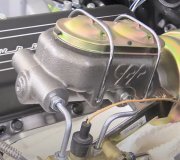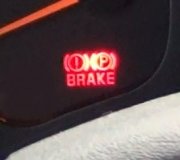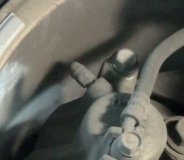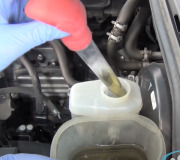It sounds like there's a leak in the hydraulic system and it may be sucking in air when you release the pedal. Look closely at the steel lines that run under the left side of the car, and at the rear wheel cylinders for signs of wetness. If nothing is found there, look for fluid seeping from between the master cylinder and power booster.
Has the red brake warning light turned on? If so, one half of the hydraulic system is not building pressure.
These cars were also available with rear disc brakes, (I have one). If you installed a master cylinder for a car with rear disc, there might be a difference. I'll have to research that. Normally there is a residual check valve in the port for the rear brakes, but this is a split-diagonal system. One hydraulic circuit works one rear brake and the opposite front brake. There can't be a residual check valve holding pressure on the front brakes or they would stay applied.
You might try bleeding the rear wheel cylinders again. Watch for air bubbles. If there are some, there is likely corrosion buildup that is holding the lip seals from sealing after they have been applied. That would let fluid dribble out and air get in.
Have you had the rear brakes apart to inspect them? It's not unheard of for one of the linings to rust off and rotate with the drum. You will have good pedal or no pedal depending on where the lining is when you hit the pedal.
Caradiodoc
SPONSORED LINKS
Sunday, November 28th, 2010 AT 4:05 PM




